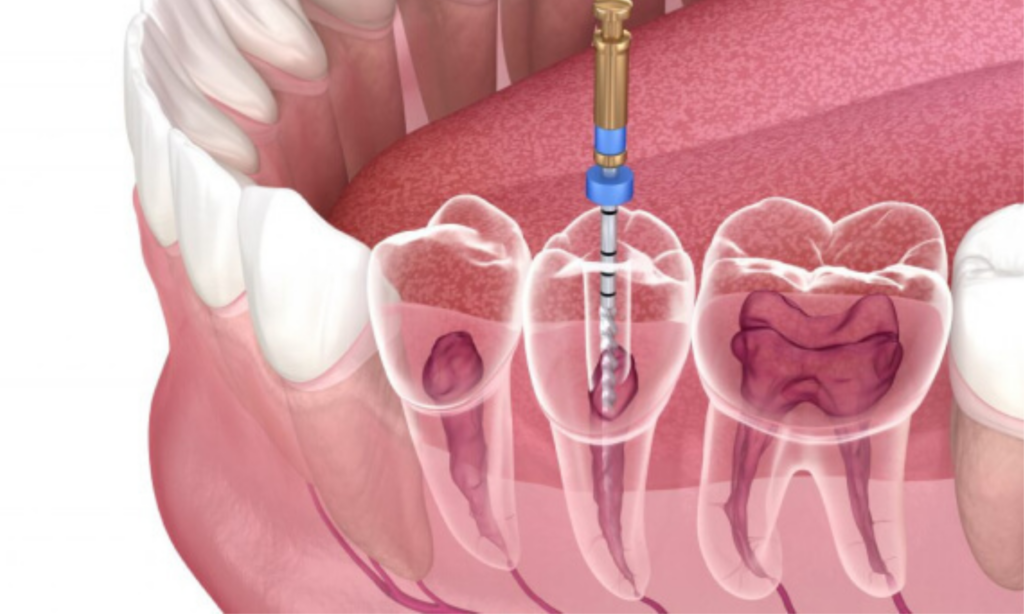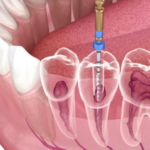
A root canal is a common dental procedure designed to save a severely infected or damaged tooth. While many people associate root canals with pain, the reality is that the treatment itself is not painful but actually helps to relieve discomfort and prevent further complications. Recognizing the early signs that you might need a root canal can help you seek timely dental care and avoid more serious dental issues. In this article, we will discuss the key symptoms that indicate you may need a root canal and why it is essential to address them promptly.
What is a Root Canal?
A root canal is a dental procedure that treats infection or damage deep within a tooth. The procedure involves removing the infected pulp, cleaning and disinfecting the inside of the tooth, and sealing it with a filling or crown. This treatment helps preserve the natural tooth, preventing the need for extraction.
Common Signs That Indicate You May Need a Root Canal
1. Persistent Tooth Pain
One of the most common signs that you may need a root canal is ongoing tooth pain. This discomfort can be:
- Constant or intermittent
- Felt deep within the tooth
- Worsened by chewing or applying pressure
- Radiating to other areas like the jaw, ear, or head
If your toothache does not subside after a few days, it is crucial to see a dentist for an evaluation.
2. Sensitivity to Hot and Cold Temperatures
If you experience prolonged sensitivity when consuming hot or cold foods and beverages, it may indicate nerve damage inside the tooth. Unlike temporary sensitivity that lasts a few seconds, pain that lingers for several minutes or more can be a sign of an infected tooth pulp.
3. Swollen or Tender Gums
Swelling around the affected tooth is another indication of infection. This swelling may be accompanied by:
- Tenderness when touched
- A pimple-like bump (dental abscess) on the gums
- Pus drainage, leading to an unpleasant taste in the mouth
Swollen gums should never be ignored, as they could signal a severe infection requiring immediate treatment.
4. Tooth Discoloration
A tooth that turns dark or gray may indicate nerve damage due to infection or trauma. This discoloration occurs because the internal tissues are decaying, and a root canal may be necessary to save the tooth.
5. Pain While Chewing or Touching the Tooth
Pain when applying pressure to a tooth, whether from chewing or touching, could be a sign of deep decay, infection, or even a cracked tooth. This discomfort often signals that the tooth’s nerves are compromised and need professional treatment.
6. A Cracked or Chipped Tooth
A cracked or chipped tooth can expose the inner pulp to bacteria, leading to infection. Even if there is no immediate pain, bacteria can enter through small fractures, eventually causing severe discomfort and the need for a root canal.
7. Prolonged Bad Breath or Unpleasant Taste
Chronic bad breath (halitosis) or a foul taste in the mouth, even after brushing and flossing, may indicate an infection inside a tooth. This happens when pus forms inside an abscess, leading to a persistent unpleasant odor.
8. Deep Decay (Cavity) That Reaches the Pulp
When a cavity progresses deep into the tooth, bacteria can invade the pulp, causing severe pain and infection. In such cases, a root canal is often the only option to save the tooth and prevent further complications.
Why You Shouldn’t Ignore These Symptoms
Ignoring signs of a potential root canal need can lead to serious consequences, such as:
- Spreading Infection: Bacteria from an infected tooth can spread to the jaw, face, or bloodstream, leading to more severe health problems.
- Tooth Loss: If left untreated, the tooth may become too damaged to save and require extraction.
- Increased Pain and Discomfort: The longer you wait, the more intense the pain and swelling may become.
What to Do If You Experience These Symptoms
If you notice any of the above signs, schedule a dental appointment as soon as possible. Your dentist will perform an examination and may take X-rays to determine whether a root canal is necessary.
Summary:
Recognizing the early symptoms of an infected or damaged tooth can help you seek timely treatment and avoid severe dental complications. If you are experiencing persistent pain, sensitivity, swelling, or any other concerning symptoms, consult a dentist immediately. For expert root canal treatment and comprehensive dental care, visit Dentaverse Clinic in Kharadi, Pune. Whether you need a dental implant in Kharadi or are looking for a trusted dentist in Pune like Dr. Anjali Mendhe, Dentaverse Clinic offers top-quality dental solutions to ensure your oral health remains in excellent condition. Book your appointment today to restore your smile and well-being




